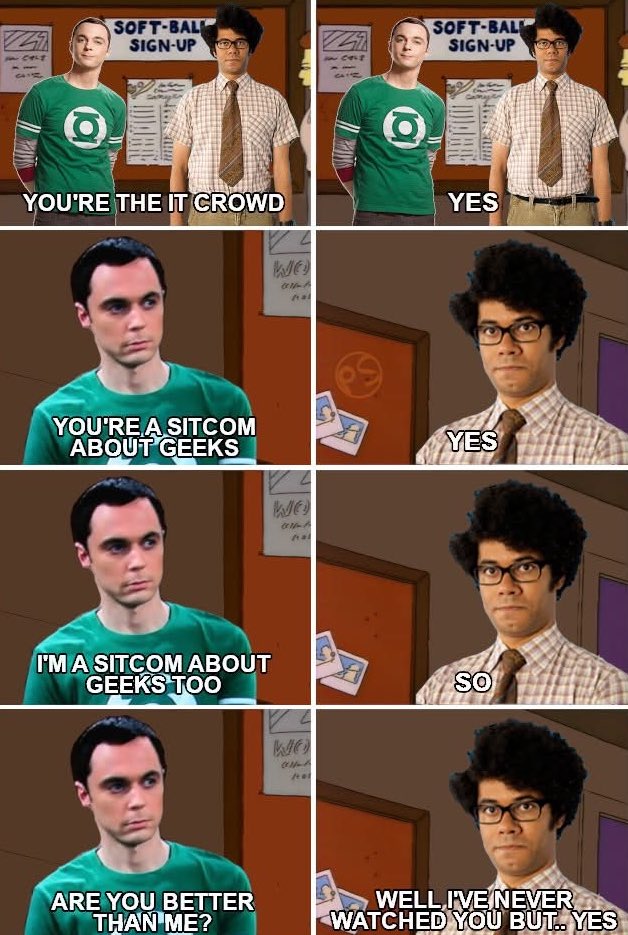this post was submitted on 18 Apr 2025
1166 points (93.8% liked)
memes
14346 readers
2892 users here now
Community rules
1. Be civil
No trolling, bigotry or other insulting / annoying behaviour
2. No politics
This is non-politics community. For political memes please go to !politicalmemes@lemmy.world
3. No recent reposts
Check for reposts when posting a meme, you can only repost after 1 month
4. No bots
No bots without the express approval of the mods or the admins
5. No Spam/Ads
No advertisements or spam. This is an instance rule and the only way to live.
A collection of some classic Lemmy memes for your enjoyment
Sister communities
- !tenforward@lemmy.world : Star Trek memes, chat and shitposts
- !lemmyshitpost@lemmy.world : Lemmy Shitposts, anything and everything goes.
- !linuxmemes@lemmy.world : Linux themed memes
- !comicstrips@lemmy.world : for those who love comic stories.
founded 2 years ago
MODERATORS
you are viewing a single comment's thread
view the rest of the comments
view the rest of the comments

Except for that one transphobic episode that Graham Linehan has ruined his whole life over instead of going "Yeah, I'm sorry, that was a bit insensitive."
EDIT: since I don't want the top reply not to mention this, fuck IT Crowd creator Graham Linehan for the incalculable damage he's done to innocent trans people. He's a worthless, disgusting bigot.
Honestly, I always found that episode... Weirdly progressive? Even maybe by accident? Consider the following:
Yeah, it's kind of a Death of the Author moment. Ignore Glinner being a transphobic ogre and it's actually quite good.
Glinner is the biggest argument I've seen against Death of the Author, because once you know you're supposed to be laughing at the marginalised character and with the characters mistreating them, it's impossible to find it funny.
There's lots of examples of it too. The first time watching the theatre trip episode where a judge in drag opens the play, I'd read Roy's discomfort with the show being "too gay" as a joke on Roy being out of his element; we were supposed to laugh at his discomfort. But on rewatching it's hard to shake the idea that actually Roy's defence of "I don't want his sexuality rubbed in my face" is meant as something the audience is supposed to identify and agree with, and that far from being a knowing playful nudge at gay theatre the whole thing was a mean-spirited caricature of it. The meaning does get changed whether Roland Barthes likes it or not.